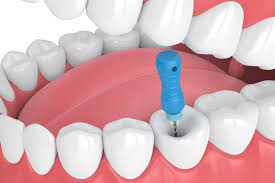Many people find themselves asking, “Do I really need a root canal?” when their dentist recommends one. This common dental procedure is designed to save an infected or damaged tooth, but the idea of undergoing it can bring hesitation or anxiety. Understanding when a root canal is truly necessary can help you make informed decisions about your oral health. In most cases, if your dentist suggests a Root Canal Treatment in Dubai, it’s because the tooth’s pulp is infected, inflamed, or dying—and ignoring it could lead to worse complications.
Understanding What a Root Canal Treats:
A root canal isn’t just a random suggestion—it’s a targeted solution for deep tooth problems. When the inner pulp of the tooth becomes infected or damaged, it can’t heal on its own. Bacteria inside the pulp can lead to abscesses, pain, swelling, and even bone loss if not treated properly.
Common conditions that often require a root canal include:
- Severe tooth decay that reaches the nerve tissue
- Cracked or chipped teeth that expose the pulp
- Repeated dental procedures on the same tooth
- Injury or trauma that causes the nerve to die
- Persistent tooth pain or extreme sensitivity
If left untreated, these issues may not only worsen but also threaten surrounding teeth and tissues.
Symptoms That Signal You Might Need One:
You might wonder whether the signs you’re experiencing mean a root canal is unavoidable. While only a dentist can confirm, certain symptoms are strong indicators that root canal treatment could be needed.
Warning signs include:
- Throbbing or persistent toothache, especially when biting or chewing
- Increased sensitivity to hot or cold, even after the stimulus is removed
- Swollen gums or a visible bump near the tooth
- Discoloration of the tooth, turning gray or dark
- Pain that worsens at night or while lying down
If any of these symptoms are present, it’s important to see a dentist promptly for evaluation.
The Risks of Avoiding a Root Canal:
Still thinking, Do I really need a root canal? Consider what could happen if the condition is ignored. An untreated infection can spread beyond the tooth, affecting your jawbone and overall health. Tooth loss, sinus complications, and systemic infections are real risks.
Potential consequences of avoiding treatment include:
- Increased pain and swelling in the tooth and face
- Abscess formation, which may require surgical drainage
- Bone loss around the root of the infected tooth
- Spread of infection to other areas of the body
- Tooth extraction, which can be more costly and invasive
The goal of a root canal is to prevent these complications while preserving your natural tooth.
When a Root Canal May Not Be Necessary?
Not every toothache ends in a Root Canal Treatment . There are situations where the problem can be addressed through other means like a filling, dental bonding, or crown placement. A proper diagnosis—often with the help of X-rays—is key to determining the best course of action.
You may not need a root canal if:
- The damage is only surface-level, affecting enamel and not the pulp
- The sensitivity is temporary, often due to recent dental work
- The tooth pain is caused by gum issues, like gingivitis or recession
- A filling or onlay can restore function without entering the root
If you’re unsure, don’t hesitate to seek a second opinion to feel confident in your treatment plan.
Making the Right Decision for Your Smile:
So, do I really need a root canal? If your dentist has diagnosed you with pulp damage, the answer is likely yes. Root canal treatment not only relieves pain but also saves your natural tooth, which is almost always better than extraction. With modern techniques, root canals are more comfortable and predictable than ever before.
Here’s what to keep in mind:
- Trust your dentist’s diagnosis, especially if supported by X-rays and clinical signs
- Ask questions to understand why a root canal is being recommended
- Weigh the risks of avoiding treatment against the benefits of saving your tooth
- Consider your long-term oral health, not just the short-term discomfort
Choosing to follow through with a root canal can restore your comfort, protect your smile, and prevent serious future problems.

